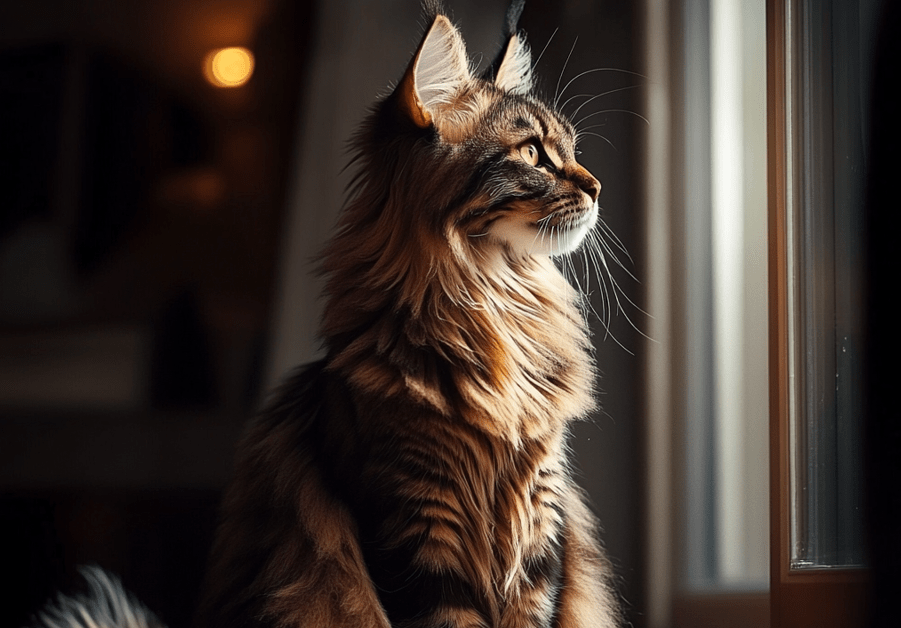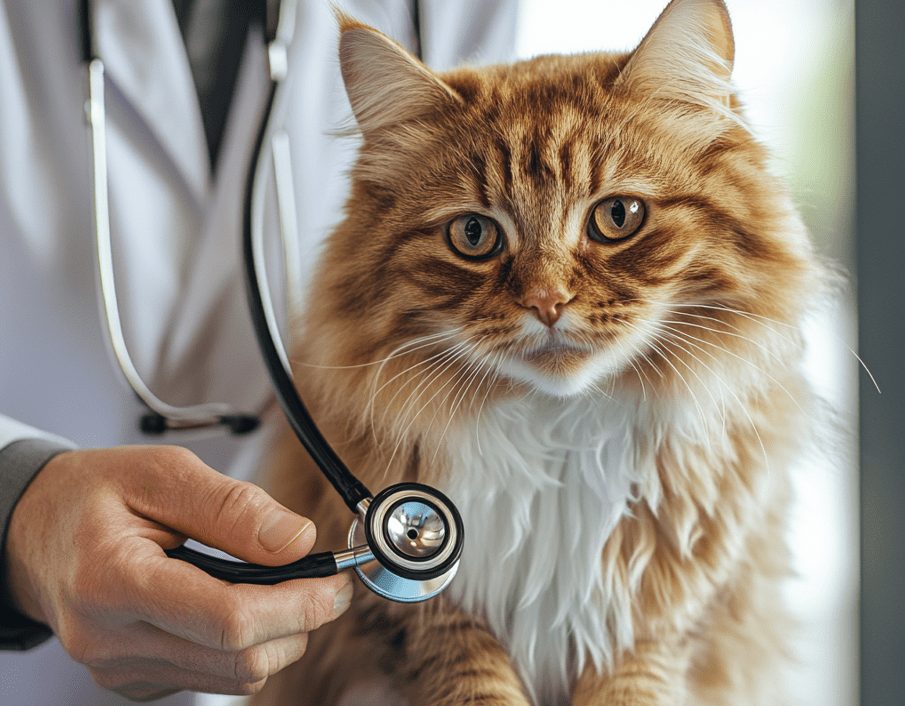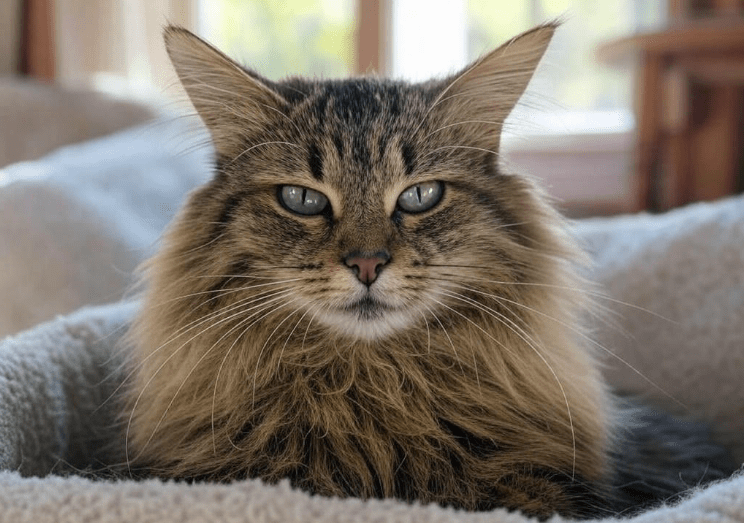
Maine Coon teeth cleaning is a vital aspect of caring for this majestic, long-haired breed, known for its friendly personality and robust size. Dental health directly impacts your Maine Coon’s overall well-being, but brushing their teeth can be a challenge for many owners due to the cat’s size, temperament, or resistance. Fortunately, there are effective ways to maintain your Maine Coon’s oral hygiene without a toothbrush. This comprehensive guide explores practical, vet-approved methods for Maine Coon teeth cleaning, ensuring your cat’s teeth stay healthy and their smile shines bright.
Why Maine Coon Dental Health Matters
Maine Coons, like all cats, are prone to dental issues such as plaque buildup, tartar, gingivitis, and periodontal disease. Poor oral hygiene can lead to pain, tooth loss, and even systemic health problems affecting the heart, kidneys, or liver. Maine Coons may be particularly susceptible due to their large size and genetic predispositions. Regular Maine Coon teeth cleaning prevents these issues, reduces bad breath, and enhances your cat’s quality of life. This article provides actionable, brush-free solutions to keep your Maine Coon’s teeth clean and healthy.
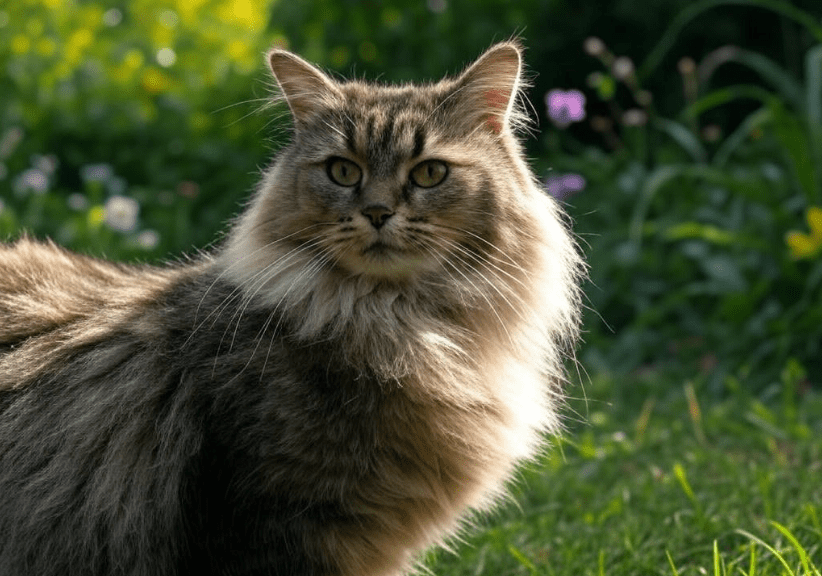
Common Dental Problems in Maine Coons
Understanding the dental challenges Maine Coons face helps you prioritize their oral care. Common issues include:
Plaque and Tartar: Soft plaque hardens into tartar, irritating gums and causing decay.
Gingivitis: Inflamed gums from plaque buildup, leading to redness and bleeding.
Periodontal Disease: Advanced gum disease that damages supporting bone and tissue.
Tooth Resorption: A painful condition where teeth erode, common in cats.
Bad Breath: Often a sign of dental disease or bacterial buildup.
Early intervention through Maine Coon teeth cleaning can prevent these problems from escalating.
Why Avoid Brushing?
While brushing is the gold standard for feline dental care, it’s not always feasible. Maine Coons may resist due to their independent nature, and their large size can make handling difficult. Some owners lack the time or confidence to brush regularly, while others worry about stressing their cat. The good news is that brush-free methods can be highly effective when done consistently and correctly, offering a stress-free alternative for both you and your Maine Coon.
Effective Brush-Free Methods for Maine Coon Teeth Cleaning
Maintaining your Maine Coon’s dental health without brushing involves a combination of diet, dental products, and professional care. Below are vet-approved strategies to keep their teeth clean and healthy.
1. Use Dental-Specific Diets and Treats
Diet plays a crucial role in Maine Coon teeth cleaning by reducing plaque and tartar naturally.
Dental Dry Food: Choose kibble designed for dental health, such as Hill’s Prescription Diet t/d or Royal Canin Dental Care. These foods have a larger, textured shape that scrapes plaque as your cat chews. Ensure the food meets your Maine Coon’s nutritional needs, as they require high-protein diets.
Dental Treats: Offer treats approved by the Veterinary Oral Health Council (VOHC), like Feline Greenies Dental Treats or Purina Pro Plan Veterinary Diets Dental Chewz. These treats mechanically clean teeth and often contain enzymes to reduce bacterial growth.
Portion Control: Overfeeding can lead to obesity, which exacerbates dental issues. Follow feeding guidelines based on your Maine Coon’s weight and activity level, typically 1/2 to 3/4 cup of dry food daily for an average 10–15-pound Maine Coon.
Pro Tip: Transition to dental foods gradually over 7–10 days to avoid digestive upset, and ensure fresh water is always available to promote chewing and hydration.
2. Incorporate Dental Chews and Toys
Chewing is a natural way for Maine Coons to clean their teeth, and specific toys and chews can enhance this process.
Dental Chews: Products like VOHC-approved chews or rawhide-free dental sticks encourage chewing, which scrapes plaque and massages gums. Look for natural ingredients and avoid chews with artificial additives.
Textured Toys: Toys like Petstages Dental Health Chews or rope-based toys stimulate chewing and saliva production, which helps wash away bacteria. Maine Coons love interactive toys, so rotate options to keep them engaged.
Safe Raw Bones: Under veterinary guidance, offer raw, meaty bones (e.g., chicken necks) for chewing. These provide mechanical cleaning but require supervision to prevent choking or splintering.
Pro Tip: Inspect toys and chews regularly for wear and replace them to avoid injury. Always supervise your Maine Coon during chewing sessions.
3. Add Dental Water Additives and Gels
Oral hygiene products designed for cats can reduce plaque and freshen breath without brushing.
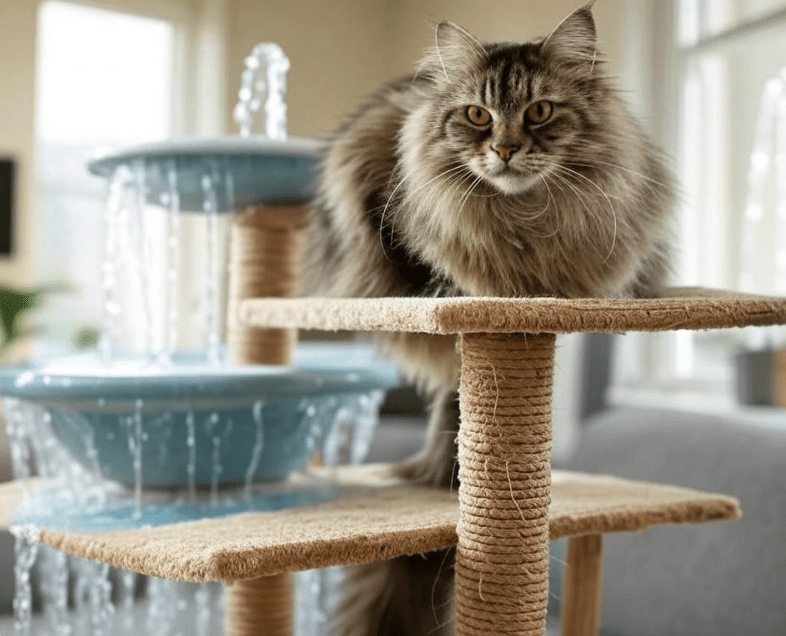
Water Additives: Products like TropiClean Fresh Breath or Oxyfresh Pet Dental Water Additive contain enzymes that break down plaque and inhibit bacterial growth. Add the recommended dose to your Maine Coon’s water bowl daily, ensuring it’s palatable to encourage drinking.
Dental Gels: Gels like Oratene Brushless Oral Care Gel or Virbac C.E.T. Enzymatic Gel can be applied to your cat’s gums with a finger or swab. These contain enzymes or antiseptics to reduce plaque and soothe gums.
Sprays: Dental sprays, such as Petkin Plaque Spray, can be misted onto teeth and gums to control bacteria. Use sparingly to avoid startling your cat.
Pro Tip: Introduce additives or gels slowly, starting with a small amount to ensure your Maine Coon accepts them. Consult your vet before using any new product.
4. Provide Dental Wipes or Pads
Dental wipes offer a hands-on, brush-free way to clean your Maine Coon’s teeth.
How to Use: Use VOHC-approved wipes, like Petkin Dental Wipes, to gently rub your cat’s teeth and gums. Wrap the wipe around your finger and focus on the outer surfaces of the teeth, where plaque accumulates.
Frequency: Aim for 2–3 times per week, depending on your cat’s tolerance. Reward with a treat afterward to build positive associations.
Benefits: Wipes remove soft plaque and freshen breath, making them ideal for Maine Coons who resist other methods.
Pro Tip: Start with short sessions, touching only a few teeth at a time, to acclimate your Maine Coon to the process.
5. Encourage Natural Chewing with Cat-Safe Plants
Certain plants can promote chewing and oral health, appealing to your Maine Coon’s instincts.
Cat Grass: Wheatgrass or oat grass encourages chewing, which scrapes teeth and aids digestion. Grow it in a pot for safe, regular access.
Silver Vine or Catnip: Silver vine sticks or catnip-infused chews stimulate chewing and reduce stress, indirectly supporting oral health by keeping your cat active.
Pro Tip: Ensure plants are non-toxic and free of pesticides. Avoid overusing catnip, as it may overstimulate some Maine Coons.
6. Schedule Regular Veterinary Dental Checkups
Professional dental care is essential for Maine Coon teeth cleaning, especially without brushing.
Annual Exams: Schedule yearly vet visits to assess your Maine Coon’s oral health. Your vet can detect early signs of gingivitis or tartar buildup.
Professional Cleanings: Under anesthesia, vets perform thorough cleanings to remove tartar and polish teeth. Maine Coons may need cleanings every 1–2 years, depending on their dental health.
X-Rays: Dental X-rays can identify hidden issues like tooth resorption or abscesses, common in Maine Coons.
Pro Tip: Discuss anesthesia safety with your vet, as Maine Coons may have genetic predispositions to heart conditions like hypertrophic cardiomyopathy (HCM), which can affect anesthesia protocols.
7. Monitor Diet and Hydration
A balanced diet and proper hydration support oral health by reducing plaque-friendly conditions.
High-Quality Food: Feed high-protein, low-carb wet or dry food to minimize sugar residue that feeds bacteria. Wet food also promotes hydration, reducing plaque buildup.
Hydration: Ensure fresh water is always available, and consider a cat water fountain to encourage drinking, as Maine Coons are drawn to running water.
Avoid Human Foods: Sugary or starchy human foods can stick to teeth, promoting plaque. Stick to cat-safe treats.
Pro Tip: If your Maine Coon prefers dry food, mix in wet food occasionally to boost moisture and support gum health.
Preventive Tips for Long-Term Maine Coon Dental Health
Preventing dental issues is easier than treating them. Incorporate these habits to maintain your Maine Coon’s oral hygiene:
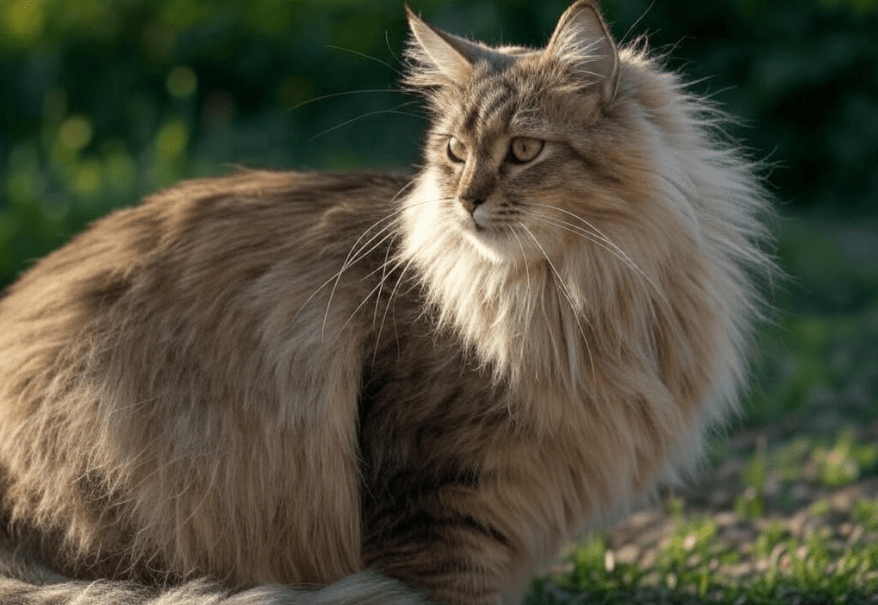
Start Early: Introduce dental care routines when your Maine Coon is young to build tolerance for wipes, gels, or chews.
Monitor Symptoms: Watch for signs of dental issues, like bad breath, drooling, difficulty eating, or pawing at the mouth.
Rotate Dental Products: Alternate between treats, chews, and additives to keep your cat engaged and ensure comprehensive cleaning.
Maintain Overall Health: Regular exercise and weight management reduce the risk of obesity-related dental problems.
Common Mistakes to Avoid
When implementing Maine Coon teeth cleaning without brushing, steer clear of these pitfalls:
Using Human Dental Products: Human toothpaste or mouthwash is toxic to cats and can cause severe illness.
Overlooking Symptoms: Ignoring bad breath or chewing difficulties can allow dental disease to progress.
Skipping Vet Checkups: Professional cleanings are essential, even with brush-free methods.
Forcing Products: Pushing your cat to accept wipes or gels can create stress, making them resistant to future attempts.
When to Seek Veterinary Attention
Some dental issues require immediate care to prevent pain or complications:
Persistent Bad Breath: May indicate advanced dental disease or systemic issues.
Difficulty Eating or Drooling: Suggests tooth pain, abscesses, or gingivitis.
Swollen or Bleeding Gums: Signals severe gingivitis or periodontal disease.
Loose or Missing Teeth: Requires urgent evaluation to prevent infection.
Conclusion
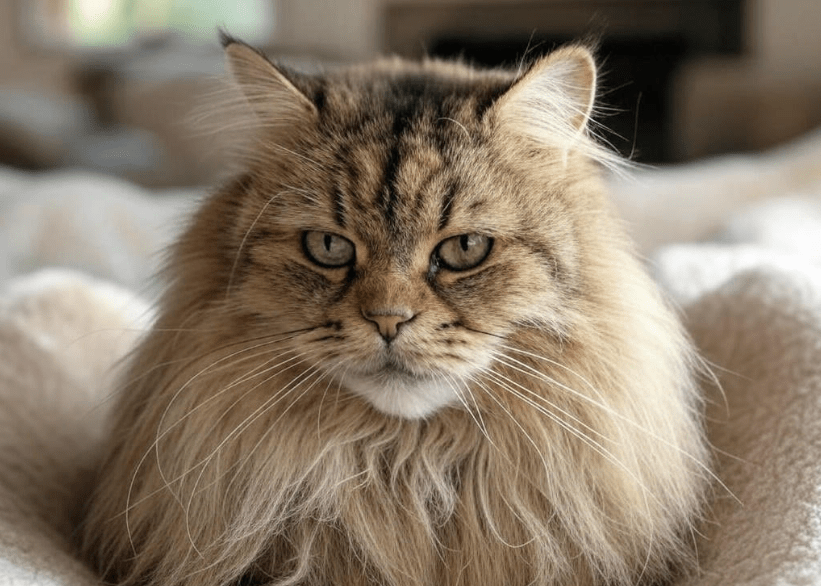
Maine Coon teeth cleaning without brushing is not only possible but also highly effective with the right approach. By incorporating dental diets, treats, chews, wipes, water additives, and regular veterinary care, you can keep your Maine Coon’s teeth clean, their breath fresh, and their overall health in top condition. Consistency and early intervention are key to preventing dental issues and ensuring your Maine Coon enjoys a pain-free, happy life. If you notice signs of dental problems, consult your veterinarian promptly to address them before they escalate.

